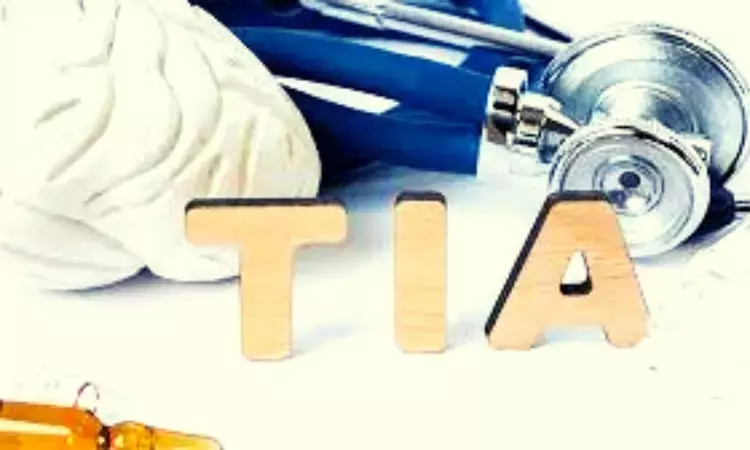- Home
- Medical news & Guidelines
- Anesthesiology
- Cardiology and CTVS
- Critical Care
- Dentistry
- Dermatology
- Diabetes and Endocrinology
- ENT
- Gastroenterology
- Medicine
- Nephrology
- Neurology
- Obstretics-Gynaecology
- Oncology
- Ophthalmology
- Orthopaedics
- Pediatrics-Neonatology
- Psychiatry
- Pulmonology
- Radiology
- Surgery
- Urology
- Laboratory Medicine
- Diet
- Nursing
- Paramedical
- Physiotherapy
- Health news
- Fact Check
- Bone Health Fact Check
- Brain Health Fact Check
- Cancer Related Fact Check
- Child Care Fact Check
- Dental and oral health fact check
- Diabetes and metabolic health fact check
- Diet and Nutrition Fact Check
- Eye and ENT Care Fact Check
- Fitness fact check
- Gut health fact check
- Heart health fact check
- Kidney health fact check
- Medical education fact check
- Men's health fact check
- Respiratory fact check
- Skin and hair care fact check
- Vaccine and Immunization fact check
- Women's health fact check
- AYUSH
- State News
- Andaman and Nicobar Islands
- Andhra Pradesh
- Arunachal Pradesh
- Assam
- Bihar
- Chandigarh
- Chattisgarh
- Dadra and Nagar Haveli
- Daman and Diu
- Delhi
- Goa
- Gujarat
- Haryana
- Himachal Pradesh
- Jammu & Kashmir
- Jharkhand
- Karnataka
- Kerala
- Ladakh
- Lakshadweep
- Madhya Pradesh
- Maharashtra
- Manipur
- Meghalaya
- Mizoram
- Nagaland
- Odisha
- Puducherry
- Punjab
- Rajasthan
- Sikkim
- Tamil Nadu
- Telangana
- Tripura
- Uttar Pradesh
- Uttrakhand
- West Bengal
- Medical Education
- Industry
Risk of subsequent stroke not higher in patients receiving outpatient vs inpatient care for TIA: JAMA

USA: A recent study suggests that offering rapid management at transient ischemic attack (TIA) clinics is not inferior to inpatient care models. The study, published in JAMA Network Open compared the subsequent stroke risk at 2, 7, 30, and 90 days following a TIA or minor ischemic stroke (mIS).
The risk of subsequent stroke in patients evaluated in a TIA clinic was not higher than those hospitalized, the researchers stated. Patients who received treatment in emergency departments (ED) without any further follow-up were found to have a higher risk of subsequent stroke.
The transient ischemic attack is often an indicator of a high risk of subsequent cerebral ischemic events. Timely intervention is known to improve the outcome. Shima Shahjouei, Neurology Department, Neuroscience Institute, Geisinger Health System, Danville, Pennsylvania, and colleagues aimed to estimate and compare the risk of subsequent ischemic stroke among patients with TIA or mIS by care setting.
For this purpose, the researchers searched the online databases from the inception of each database until October 1, 2020. Studies that evaluated the occurrence of ischemic stroke after TIA or mIS were included.
The analysis included 226 683 patients from 71 articles recruited between 1981 and 2018; 5636 patients received care at TIA clinics, 130 139 as inpatients, 3605 at EDs, and 87 303 patients received care in an unspecified setting.
Based on the study, the researchers found the following:
- Among the patients who were treated at a TIA clinic, the risk of subsequent stroke following a TIA or mIS was 0.3% within 2 days, 1.0% within 7 days, 1.3% within 30 days, and 2.1% within 90 days.
- Among the patients who were treated as inpatients, the risk of subsequent stroke was to 0.5% within 2 days, 1.2% within 7 days, 1.6% within 30 days, and 2.8% within 90 days.
- The risk of stroke among patients treated at TIA clinics was not significantly different from those hospitalized.
- Compared with the inpatient cohort, TIA clinic patients were younger and had had lower ABCD2 (age, blood pressure, clinical features, duration of TIA, diabetes) scores (inpatients with ABCD2 score >3, 1101 of 1806 [61.0%]; TIA clinic patients with ABCD2 score >3, 1933 of 3703 [52.2%]).
"These findings suggest that TIA clinics can be an effective component of the TIA care component pathway," concluded the authors.
Reference:
Shahjouei S, Li J, Koza E, et al. Risk of Subsequent Stroke Among Patients Receiving Outpatient vs Inpatient Care for Transient Ischemic Attack: A Systematic Review and Meta-analysis. JAMA Netw Open. 2022;5(1):e2136644. doi:10.1001/jamanetworkopen.2021.36644
Dr Kamal Kant Kohli-MBBS, DTCD- a chest specialist with more than 30 years of practice and a flair for writing clinical articles, Dr Kamal Kant Kohli joined Medical Dialogues as a Chief Editor of Medical News. Besides writing articles, as an editor, he proofreads and verifies all the medical content published on Medical Dialogues including those coming from journals, studies,medical conferences,guidelines etc. Email: drkohli@medicaldialogues.in. Contact no. 011-43720751


